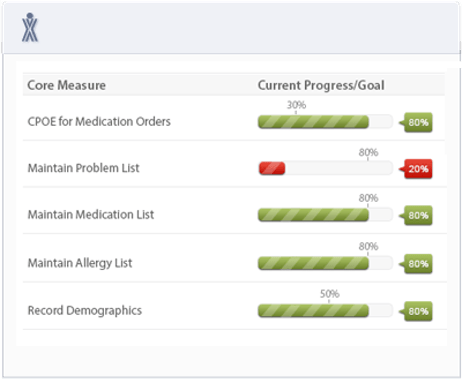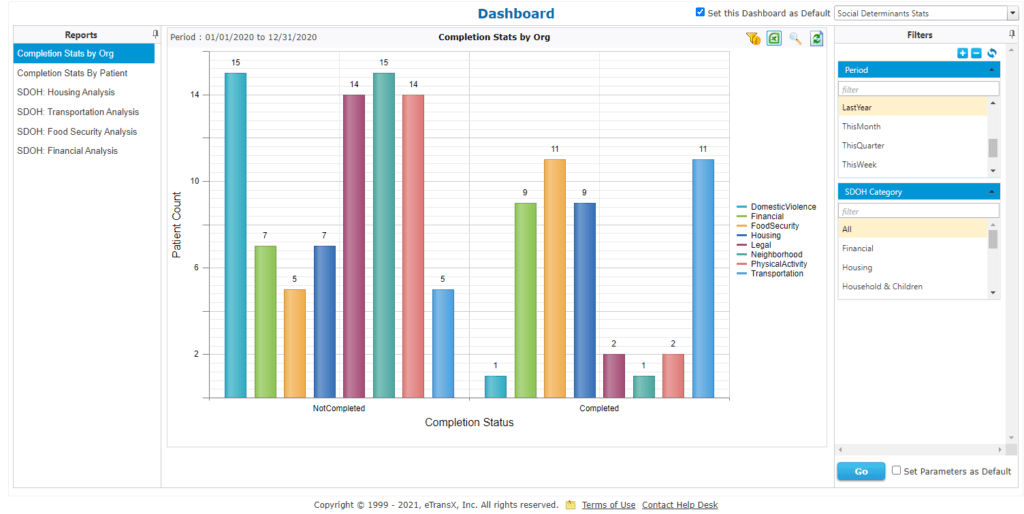Wellbeing Care Community transforms data into actionable insightst through WCC analytics. Wellbeing Care Community streamlines your data collection processes and allows you to share data and coordinate services seamlessly and efficiently, all the while collecting the data you need to confirm results and sustain grant initiatives.
WCC Analytics
Advanced WCC Analytics
The key insights needed to improve sobriety and reduce recidivism
Three Critical Aspects of Advanced Analytics
Advanced data analytics and data-driven intervention offer the key insights needed to support making improvements and tracking progress with the vital conditions of well-being (see diagram below). The eTransX Wellbeing Care Community system enables users to aggregate and harmonize large datasets and then turn this data into insights – insights that can help identify immediate client needs, community needs, gaps in community resources, and consistently measure the vital conditions of wellbeing that include the social determinants of health. The Wellbeing Care Community system accomplishes this feat through three critical aspects of advanced analytics – consistent data input, discrete data elements, and customized reporting.
- Consistent Data Input
The Wellbeing Care Community system contains the tools needed to help ensure data is collected accurately and consistently. The evidence is in the data, and through the WCC analytics can help collect and clearly demonstrate that evidence. The included workflow tools and Provider Portal iPad Application make it simple for system users to administer intake processes, assessments of many types, and document contact points. This makes it easy to collect data to measure and manage Quality Measures while also addressing other data needs seamlessly.
- Discrete Data Elements
Every aspect of data collection in the Wellbeing Care Community system is discrete. In other words, reports can be run on everything collected from multiple perspectives. The Wellbeing Care Community Implementation Team works with clients to customize any of the assessments that are included with the Wellbeing Care Community system or can assist with building new data assessments from the ground up. Every answer on every assessment can be used later to analyze client-specific as well as community-wide evidence. This includes Social Determinants of Health as well as measuring such things as adverse childhood experiences (ACEs). If custom assessments are performed in other systems, those scores can be brought into Wellbeing Care Community system for further analysis.
- Customized Reporting
The Wellbeing Care Community system comes with several reports “out of the box”. However, every community has different needs and therefore different metrics. The Implementation Team will work with you while building out each instance of the Wellbeing Care Community system to make sure all unique reporting needs are met. This can include grant reporting, community trends, assessment and drug test trends, etc. Whatever our clients’ data needs are, the Wellbeing Care Community system can help achieve them.
Manage Quality Measures
Efficiently track, understand and report necessary data points

Track, monitor and report on organization quality performance metrics, analyzing performance from various perspectives. Identify and track necessary data points for achieving grant requirements and support continued funding.
Additional analytics capabilities include:
- Real time data on household/business needs
- What are the current household and business needs?
- Ranked by degree of crisis and urgency
- Real time data on available community resources
- What are the current household and business needs?
- Segmented by category, capacity, and eligibility requirements
- Real time data on urgent gaps in services
- Healthy Food gaps (food bank shortages)
- Affordable Housing gaps (wait times)
- Small business financial assistance gaps
- Gaps in access to health and mental health services

